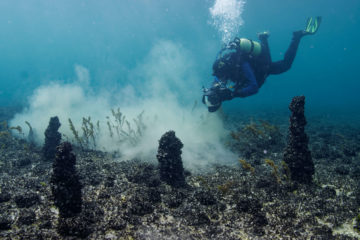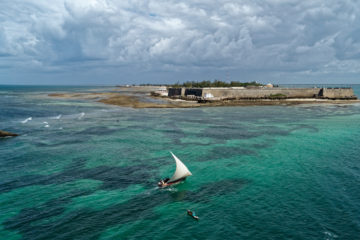
Prehistoric villages in Neuchâtel (Switzerland, 2022)
5000 years ago, men built wooden villages on the shores of alpine lakes. These “pile-dwellings” were eventually abandoned, their remains quickly covered by sediments deposited by rising water levels. Isolated from the air, fragile material such as wood has remained intact, representing an incredible source of information on the way our very distant ancestors lived. Today, some archaeological sites could be threatened by the joint effects of natural erosion and human activities.





